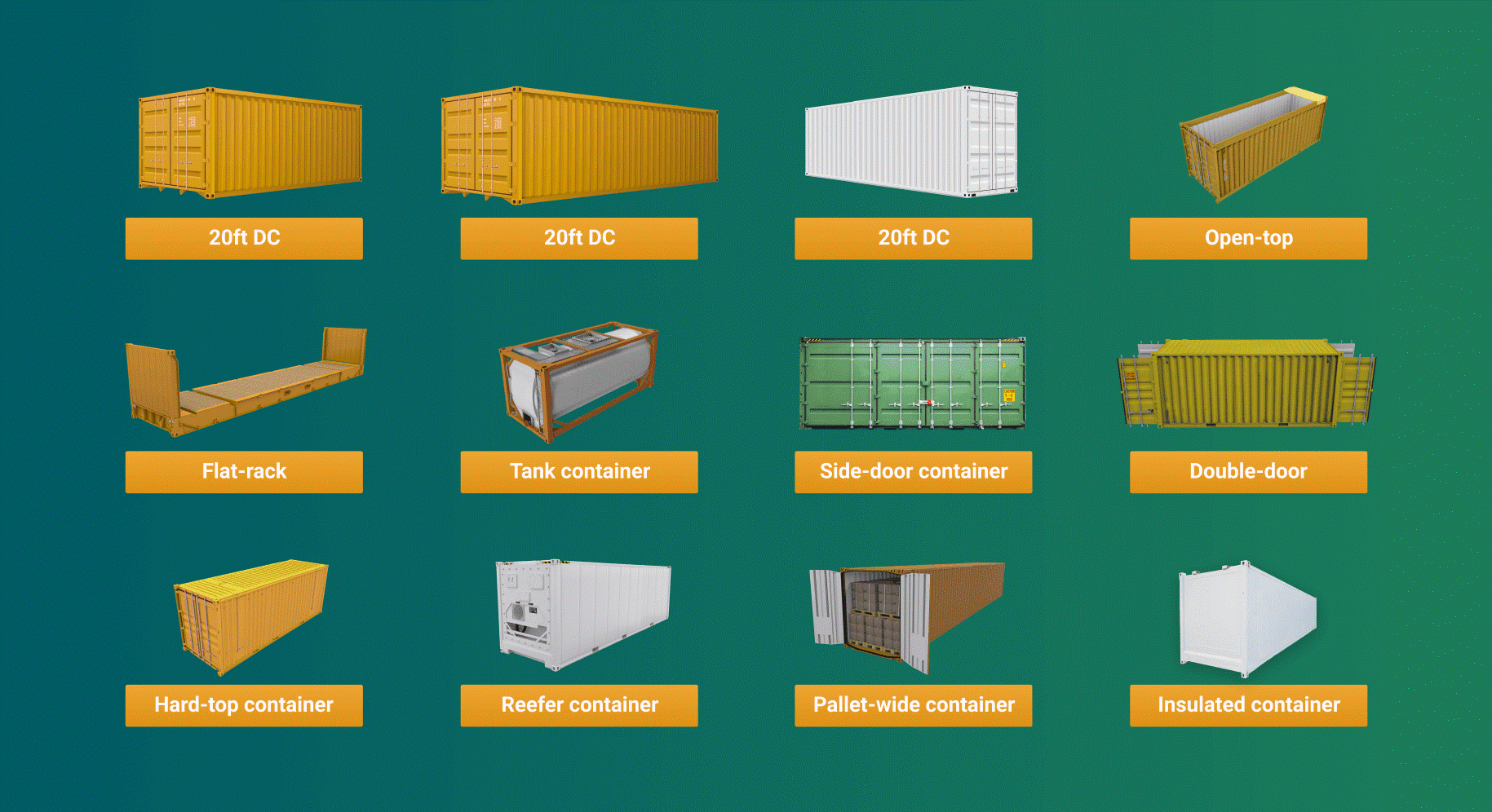-
Shipping Containers
- Container Parts
- Roof Panel
- Side Panel
- Front End Panel
- Door Panel
- Front Corner Post
- Rear Corner Post (Outer/Inner)
- Cross Member
- Bottom Side Rail
- Top Side Rail
- Door Sill
- Front Bottom Rail
- Top End Rail
- Door Header Upper/Lower
- Door Rail
- Floor Spacer
- Angle
- Top/Bottom End Rail
- Door Edge Member
- Door Sealing
- Door Frame Profile
- Door Lining
- Door Hardwares
- Door Gasket
- Side Panel/Lining
- T-Floor
- Roof Panel/Lining
- Cross Member
- Bottom Side Rail
- Top Side Rail
- Ledge PVC
- Kazoo Drain
- Auto Drain
- Alu Tube
- Auto Drain Center Part
- PVC Drain Pipe
- PVC Plugs f. Drain with Ring and Steel Wire
- Door Screw
- Door Screw Nut
- Door Screw Rubber
- Tapping Screw
- Stainless Blind Rivet
- Lashing Ring
- CSC Plate
- Welding Wire
- Tapping Screw Bit
- Vehicle Parts
- Ship Supplies
- 00. Provisions
- 11. Welfare Items
- 15. Cloth & Linen Products
- 17. Tableware & Galley Utensils
- 19. Clothing
- 21. Rope & Hawsers
- 23. Rigging Equipment & General Deck Items
- 27. Painting Equipment
- 31. Safety Protective Gear
- 33. Safety Equipment
- 35. Hose & Couplings
- 37. Nautical Equipment
- 39. Medicine
- 45. Petroleum Products
- 47. Stationery
- 49. Hardware
- 51. Brushes & Mats
- 55. Cleaning Material & Chemicals
- 59. Pneumatic & Electrical Tools
- 61. Hand Tools
- 63. Cutting Tools
- 65. Measuring Tools
- 69. Screws & Nuts
- 75. Valves & Cocks
- 77. Bearings
- 79. Electrical Equipment
- 81. Packing & Jointing
- 85. Welding Equipment
- 87. Machinery Equipment
- Vehicles
- Lashing Tools
- Logistics Tools
ContainersWant to buy a container ,7 easy steps to find!Feb 11,2023The process of buying a container can seem tedious and exhausting, and CIMC Equilink is here to help. This step-by-step guide will take you quickly and easily to finding the right shipping container for your needs.
7 Steps to Buying a Container
- Step 1: Should I buy or lease a container?
- Step 2: What type of container do I need?
- Step 3: Select the condition and class of the container
- Step 4: Fees for the container
- Step 5: Where to buy containers?
- Step 6: Hire a box checker
- Step 7: Shipping Container
Step 1: Should I buy or lease a container?
You should make choices based on your circumstances. Let's look at some situations you might want to consider.
If you just need to use containers to store goods, then you should buy containers.
The options are the same for the following cases:
- Need to use the container indefinitely
- Containers need to be used frequently
- Don't need too many containers
When you are planning to purchase a container, it is important to ensure that you will be using the container for the long term, as buying a container is a one-time payment transaction. However, you can also sell it later on the used container market, or even use it for other purposes. Buying a shipping container is a good investment if you have deep pockets.
On the other hand, you may only need to use a small number of containers. It is also possible that you need a large number of containers, but only for one-way shipments; or you only need to use containers for a short period of time.
If you belong to any of these situations, then leasing a container is the best choice for you. You can also consider a one-way rental. In the case of short-term use, leasing is more cost-effective than buying a container, because you only need to pay the rent. However, in the long run, the cost of leasing containers may continue to add up, and even exceed the cost of buying second-hand containers.
Step 2: What type of container do I need?
Now that you know whether you should buy or lease a container, you're ready for the next step: determining the type of container you need. There seems to be a lot of dense information involved here again. But it totally depends on what cargo you want to ship.

When you start looking for a container, one of the first questions you should consider is: do I need a standard container, or a container that can meet the special requirements of the cargo? If you need to ship paper or other common dry cargo, standard containers are the solution. At this time, you can choose the most commonly used 20-foot and 40-foot containers, as well as tall boxes that exceed their standard heights.
But if your goods have special requirements, there are many special containers for you to choose. If you need to ship food, chemicals or pharmaceuticals, then you should look for refrigerated containers. Refrigerated containers maintain a stable temperature inside the container (suitable for cold chain logistics).
If you are transporting oversized cargo or engineering cargo, you must choose special containers, such as rack boxes, open top containers, hard open top containers, etc.
Step 3: Select the condition and class of the container
After you decide which container to choose, it's time to determine the class of the container. It depends on what your container is for. This step ensures that your shipment successfully clears customs. Containers have the following classes:
New/Second New: A container that has been used only once before reaching its destination is called a second new container. They have just been shipped from the manufacturer to the owner and are virtually brand new in the container.
Class F (Food Grade Containers): Class F containers are new containers, also known as food grade containers. This means the container can be used to ship food and has not previously been loaded with any toxic chemicals or products.
Class A: These are new, refurbished or used containers. This container has minimal rust and dents and has good wind and water resistance (WWT). These durable containers are suitable for transporting goods.
Class B (Cargo): This condition is considered suitable for cargo transportation. This kind of container can basically meet all kinds of transportation needs. Used containers also fall into this category.
Class C (Windproof and Waterproof): If wind or water cannot penetrate the container, then the container meets the windproof/waterproof standard. Class C containers may have undergone multiple maintenance and are usually used as storage containers.
As-is class: Refers to containers that are severely damaged and can no longer be used for transportation. Such containers may have extensive damage to the roof or walls, damaged floors, poor seals, doors that are difficult to open, or structural damage.
Step 4: Container Price
The other most important factor you need to consider is the container price. Knowing the price beforehand can help you better close deals with sellers. Below are the prices for 20ft and 40ft TEUs at popular ports.
Now you know the current average price of a container, but container prices fluctuate from time to time, depending on a variety of factors such as location or container type.Standard Container Price (Appropriate)
Location 20
20 feet
40 feet
China
$1647
$1850
United States
$2136
$2700
India
$1471
$2235
Europe
$1625
$1800
United Arab Emirates
$1340
$1903
Step 5: Where to buy containers?
There are usually a large number of container suppliers gathered around the port. If you want to buy a container, you can go to the port for a field trip. You can also use the local network of container brokers to find the container you need.
While containers are easy to find near ports, the practice still has its drawbacks. Container prices here will be higher due to convenient transportation and lack of transparency. You don't have much opportunity to know the lowdown on its price and related surcharges, etc.
Another solution you might consider is to take the time to flood your network with the hope that someone in it happens to be selling containers. There is also a more convenient way, that is to submit your demand to the marketing personnel of CIMC Equilink, and we will handle everything for you.
Step 6: Hire a box checker
If you want to rent a container, you must contact a container inspector.
Container inspectors usually perform safety inspections, surveys and inspections of container equipment before or after a company leases containers to ensure that the container is in suitable condition.
This is often a task that a leasing company needs to perform in order to keep it running its business.
Step 7: Shipping Container
After you have purchased the container, you should think about how to ship the box to your designated location. That means you have to decide on schedules, booking classes, trucking and railing.
Are you planning to ship empty boxes? Why lose money to transship empty containers by yourself, and not let others transport your containers for free?
You may wish to ship the container as a one way box. Suppose you need to ship a container from Los Angeles, USA to Shanghai, China. This means that the container user rents a freight container for the journey. This is a situation where both parties to the transaction can achieve a win-win situation.
Container users can deliver goods here, and you can also get the desired container at the designated location. Even better, the container user is responsible for paying for the shipping of that container. This means you get the container at your nominated location without paying anything.
CIMC Equilink provides various types of new and used containers, especially our standard containers, 40 feet container price and 20 feet container price are very affordable. If you are looking for shipping containers for sale, please visit us by email(info.equilink@cimc.com)or submit a quick quote. We look forward to your call, we will serve you whole heartedly and solve your problems.
Quick Quote
Copyright © 2019 CIMC Equilink - Container Parts

 中文
中文















